This bespoke list consists of some truly classic audiobooks in the science fiction genre. But also some newer titles from a few outstanding contemporary writers. Furthermore, what combines all these books is that most of them have been adapted into movies. I have also included the page count because if you have a book club as I do, it’s one thing to consider when picking a book. Without further ado, enjoy!

Alternatively, if you’re interested in non-fiction you can check out our best science audiobooks or science book recommendations.
‘Leviathan Wakes’ by James S. A. Corey (561 pages)
Currently, the most outstanding series in the genre of science fiction is the Expanse by James S.A. Corey, otherwise known as Daniel Abraham and Ty Franck.
In short, it’s about 3 factions (Earthers, Martians, and Belters) struggling for power, both political and military, in our solar system. However, they will soon understand, more than ever, that they are not alone.
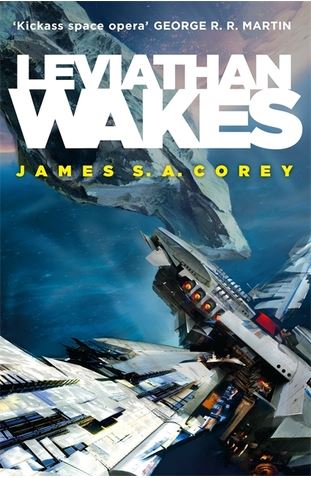
The books were adapted into a successful tv series. Fortunately, the show stands on its own as well due to the attention to scientific detail – courtesy of Naren Shankar who has a Ph.D. in applied physics and electrical engineering.
What kind of half-assed apocalypse are they running down there?” Amos said. “Give ’em a break. It’s their first.
― James S.A. Corey, Leviathan Wakes
‘The Martian’ by Andy Weir (384 pages)
The Martian was one of three first audiobooks I ever heard and it was amazing. Wil Wheaton does an outstanding job narrating and I have to say the book is better than the movie. But I’m glad the movie was made.
In short, it’s about an astronaut getting stranded on Mars and attempting to survive the inhospitable surrounding he finds himself using nothing but his training and the limited resources available to him.
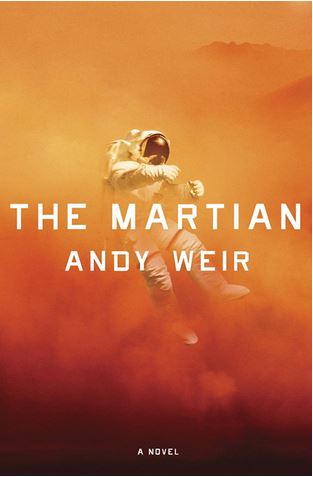
Yes, of course duct tape works in a near-vacuum. Duct tape works anywhere. Duct tape is magic and should be worshiped.
― Andy Weir, The Martian
‘Ender’s Game’ by Orson Scott Card (324 pages)
Ender’s Game is the first book in the critically acclaimed pentalogy (The Enderverse). Which was made into a movie in 2013, starring Asa Butterfield and Harrison Ford (among others).
It is about future earth, which survived an alien invasion, and how since then young children have been recruited into the military for their ability to adapt fast in a new type of dynamic warfare.
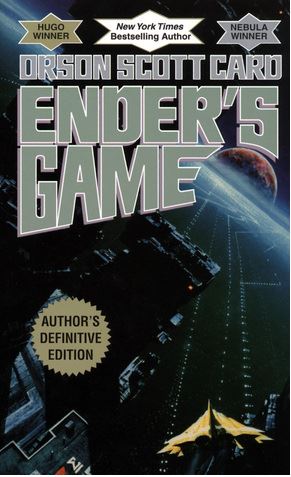
Ender is one of those young brilliant children, who has to establish his own abilities and find his own moral footing.
Perhaps it’s impossible to wear an identity without becoming what you pretend to be.
― Orson Scott Card, Ender’s Game
‘1984’ by George Orwell (298 pages)
I read “1984” and “Animal farm” in my first book club. It should be mandatory reading for anyone living in a society, alas that statement would go against the spirit of the book.
In essence, it’s a book about a dystopian future where even thinking is regulated and subject to scrutiny. I’d recommend people first start with “Animal Farm” and then read “1984” as the contents are of a similar vein but not identical.
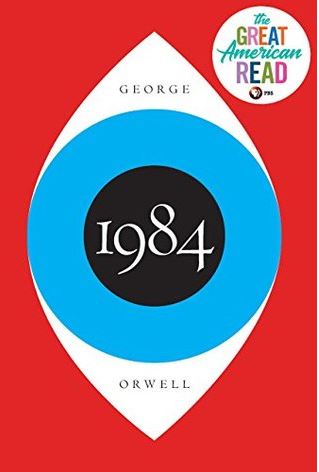
Perhaps one did not want to be loved so much as to be understood.
― George Orwell, 1984
‘Fahrenheit 451’by Ray Bradbury (194 pages)
The classic dystopia. It speaks of a man named Guy Montag, a fireman, who burns books. He doesn’t question this until one day a young woman called Clarisse introduces him to the idea of a world unlike his own.
In my family, there is an understanding that you never throw away or burn a book. I wonder if works like Fahrenheit 451 or our soviet past are responsible?
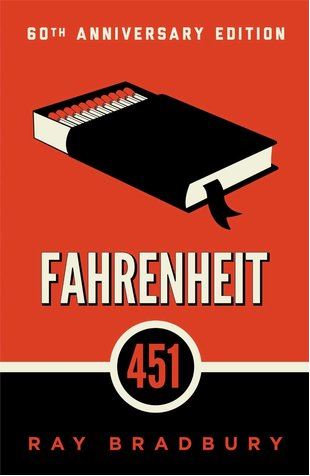
It was a pleasure to burn.
― Ray Bradbury, Fahrenheit 451
‘The War of the Worlds’ by H. G. Wells
The English author H. G. Wells has brought us a terrifying image of the world. The inhabitants of the earth occupied with living their lives are unaware, as extraterrestrials, who have depleted their own resources, turn their unkind gaze towards Earth.
Supposedly, a radio broadcast of The War of the Worlds tricked some listeners into believing it was truly happening. Because they tuned in halfway in. Now that’s great storytelling.
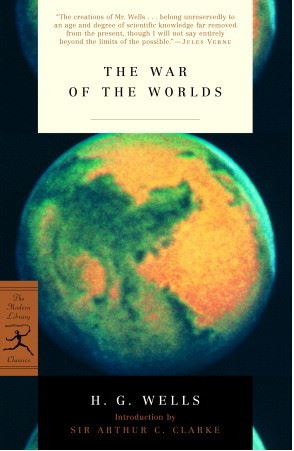
This isn’t a war,” said the artilleryman. “It never was a war, any more than there’s war between man and ants.
― H.G. Wells, The War of the Worlds
‘Dune’ by Frank Herbert (688 pages)
The prototypical book of high fantasy. Tim Ferriss thinks it’s not just a great book of fiction, but also a great book on leadership. I wholeheartedly agree.
However, the book takes itself very seriously, which makes it slightly annoying to read, because rather harshly it introduces a world with a number of foreign concepts and nomenclature that you might struggle to grasp on the fly.
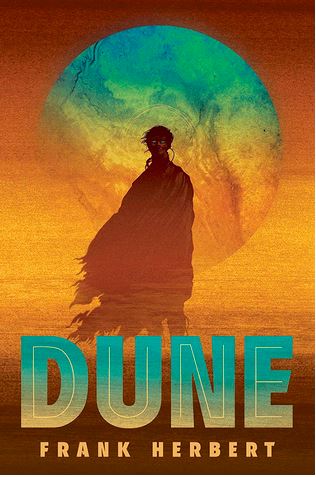
I must not fear. Fear is the mind-killer. Fear is the little-death that brings total obliteration. I will face my fear. I will permit it to pass over me and through me. And when it has gone past I will turn the inner eye to see its path. Where the fear has gone there will be nothing. Only I will remain.
― Frank Herbert, Dune
‘Brave New World’ by Aldous Huxley (268 pages)
I loved Brave New World. The characters were unique and varied. Although some character development disagreed with me. The world is well thought out, and a lot of it resonated with my own world views.
It also seemed that Huxley used a lot of the science of his time to give his world more depth. There’s a reason it remains culturally relevant.
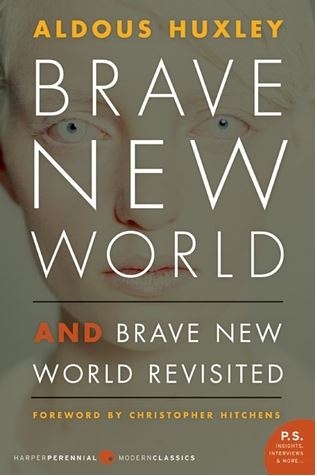
The science described might be named differently, but echo some real monstrous experiments in medicine and psychology in early 20th century.
You can’t make tragedies without social instability.
― Aldous Huxley, Brave New World
‘The Hitchhiker’s Guide to the Galaxy’ by Douglas Adams (193 pages)
If you love abstract humor then The Hitchhiker’s Guide to the Galaxy is the series for you. Even if you don’t love it, the book is extremely well written. And it is no pain to get through it. Douglas Adams is witty and it shows.
There’s a level of imagination that’s unique to Douglas and maybe Terry Pratchett as well. The first book basically starts with the demolishing of Earth to make room for an intergalactic highway. Need I say more?
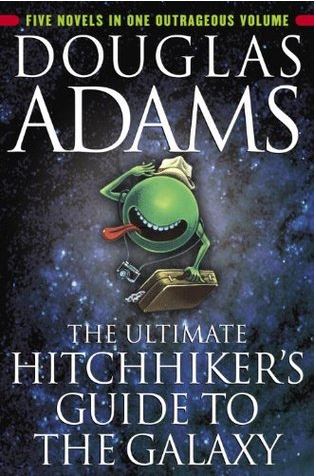
For instance, on the planet Earth, man had always assumed that he was more intelligent than dolphins because he had achieved so much—the wheel, New York, wars and so on—whilst all the dolphins had ever done was muck about in the water having a good time. But conversely, the dolphins had always believed that they were far more intelligent than man—for precisely the same reasons.
― Douglas Adams, The Hitchhiker’s Guide to the Galaxy
‘Jurassic Park’ by Michael Crichton (466 pages)
Jurassic Park needs no introduction. It’s up there with Harry Potter and Lord of the Rings. Even if you haven’t seen the movies you know about it.
But for those not in the know – basically, dinosaur DNA is recovered from amber after millions of years. Using genetic engineering various dinosaurs are brought back to life. The smartest people are can be shortsighted and circumstances may haywire.
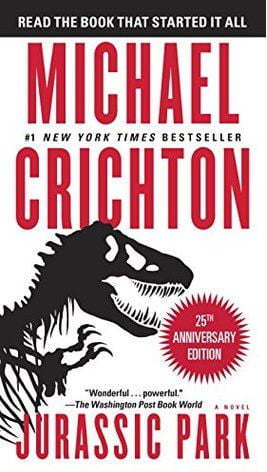
God creates dinosaurs, God kills dinosaurs, God creates man, man kills God, man brings back dinosaurs.
― Michael Crichton, Jurassic Park
‘Flowers for Algernon’ by Daniel Keyes (216 pages)
Inspired by real-life events. Flowers of Algernon is heartbreaking but equally fascinating. A rather unique book and one of the best I have read in my book club.
It speaks of a mentally handicapped man who receives a medical intervention for his limited cognitive abilities. Not just a small remedy, but an intervention that vastly improves his cognitive abilities to a level that is beyond what anyone expected.
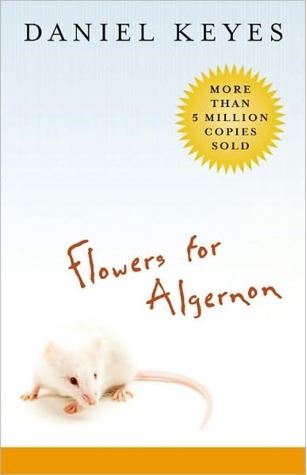
There are a lot of people who will give money or materials, but very few who will give time and affection.
― Daniel Keyes, Flowers for Algernon
‘I, Robot’ by Isaac Asimov (253 pages)
The Three Laws of Robotics:
- A robot may not injure a human being or, through inaction, allow a human being to come to harm.
- A robot must obey the orders given to it by human beings except where such orders would conflict with the First Law.
- A robot must protect its own existence as long as such protection does not conflict with the First and Second Laws.
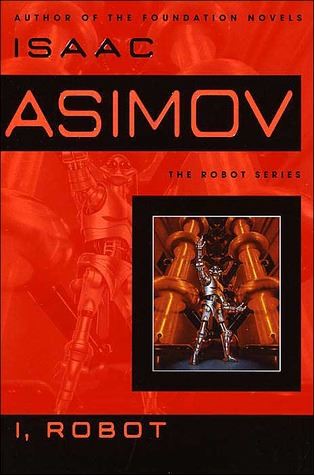
And the associated moral and ethical problems such advanced technology poses for individuals
You can prove anything you want by coldly logical reason—if you pick the proper postulates.
― Isaac Asimov, I, Robot
‘The Man in the High Castle’ by Philip K. Dick (259 pages)
What if the Nazis had won? Philip K. Dicks series The Man in the High Castle explores this idea. It’s riveting and tragic.
The book illustrates the unreal lengths people will go to uphold their ideology, even when it is clearly catastrophic for them. And the unintended consequences of having unwavering beliefs for our families.
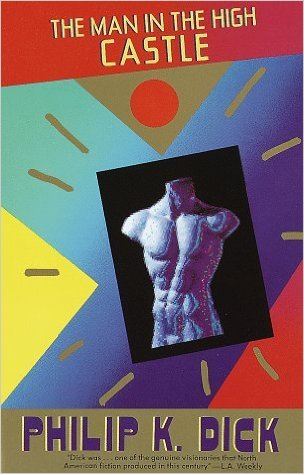
A weird time in which we are alive. We can travel anywhere we want, even to other planets. And for what? To sit day after day, declining in morale and hope.
― Philip K. Dick, The Man in the High Castle
‘Stranger in a Strange Land by Robert A. Heinlein (525 pages)
Heinlein mocks our orthodox ideas of sexual, religious, and social norms. Well, maybe not so much today, but certainly in some parts of the world.
Heinlein explores our humanity via the lens of a Martian thrust into our world and how both worlds have something to learn from another.
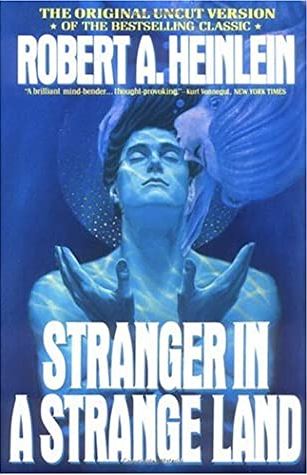
Consider the black widow spider. It’s a timid little beastie, useful and, for my taste, the prettiest of the arachnids, with its shiny, patent-leather finish and its red hourglass trademark. But the poor thing has the fatal misfortune of possessing enormously too much power for its size. So everybody kills it on sight.
― Robert A. Heinlein, Stranger in a Strange Land
‘Slaughterhouse-Five’ by Kurt Vonnegut (275 pages)
A book about war and how foolish it is. Vonnegut promised to write a book that did not glorify war, and instead wrote a book that showed how absurd it is. There are many deaths in this book and none of them are satisfying. Just how it should be.
Vonnegut is great. No doubt about it. But personally, I would have liked a less confusing overarching narrative.
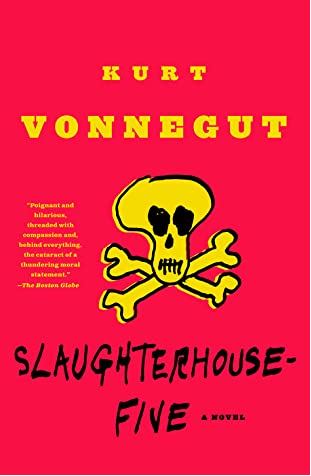
Everything was beautiful and nothing hurt.
― Kurt Vonnegut, Slaughterhouse-Five
‘Twenty Thousand Leagues Under the Seas’ by Jules Verne (394 pages)
A nautical adventure that combines history, fiction, and reality in a fairly unique blend. If you have a passion for descriptions of the oceans (plant and animal) and don’t mind extended discussions of philosophical matters then this is a book for you.
There is also love and pain, war and the accompanying tragedy. Genuine drama. However, I’m much more plot-driven.
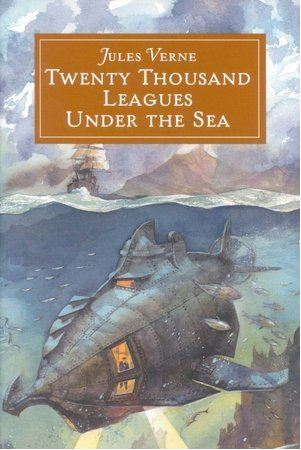
If there were no thunder, men would have little fear of lightning.
― Jules Verne, Twenty Thousand Leagues Under the Sea
‘Frankenstein’ by Mary Wollstonecraft (260 pages)
Fair warning Frankenstein is an incomplete book. It was never finished! Having said that is a shame because it was a thrilling book even if you know the story.
The story starts with a ship picking up a straggler. The straggler is a man called Victor Frankenstein, who is haunted by his horrifying past.
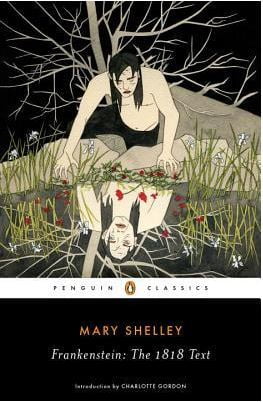
I do know that for the sympathy of one living being, I would make peace with all. I have love in me the likes of which you can scarcely imagine and rage the likes of which you would not believe. If I cannot satisfy the one, I will indulge the other.
― Mary Shelley, Frankenstein
‘The Time Machine’ by H.G. Wells (128 pages)
A Victorian-era scientist invents a time machine, which he naively uses to travel to an unimaginable future. Traversing into the unknown is clearly not without perils. Because soon the scientist finds himself stuck in the future unable to return.
The scientist must then journey into the dangerous and unknown underground world of the future. The problem, however, is that he is not alone.
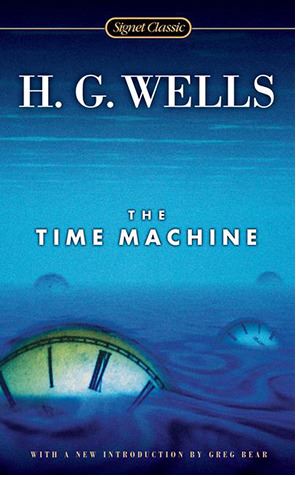
Nature never appeals to intelligence until habit and instinct are useless. There is no intelligence where there is no need of change.
― H.G. Wells, The Time Machine
‘I Am Legend’ by Richard Matheson (162 pages)
A lone human survivor faces a horde of monsters in a post-apocalyptic (pandemic) world. Highly disturbing, emotional, and gripping. It feels a bit like The Martian. But much more terrestrial and zombie-vampiresque. A survival story in the truest sense.
The only critique I have is that it does not fully explain what circumstances brought humanity to its knees. But regardless it’s a thrilling book.
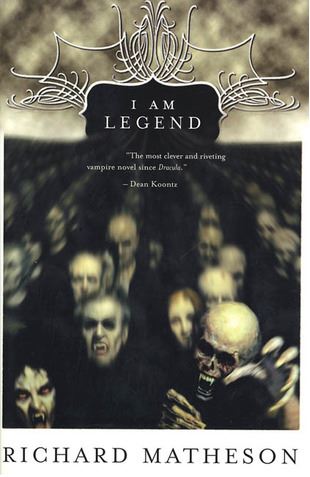
And suddenly he thought, I’m the abnormal one now. Normalcy was a majority concept, the standard of many and not the standard of just one man.
― Richard Matheson, I Am Legend
‘The Road’ by Cormac McCarthy (241 pages)
A father and son duo travel across post-apocalyptic run down America. This book explores the best and worst of humanity in times of unimaginable tragedy.
If you want something realistic in comparison to the extra-terrestrial and zombie-like dystopias presented before then this is the book for you. In general, this book is another case where the written word is better than the movie. Highly recommended.
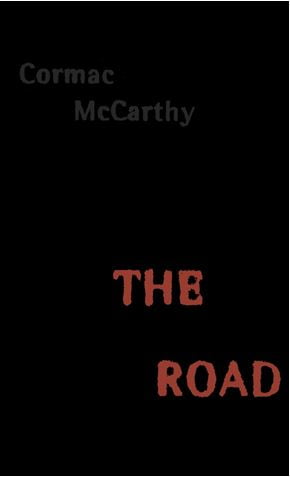
What’s the bravest thing you ever did?
He spat in the road a bloody phlegm. Getting up this morning, he said.― Cormac McCarthy, The Road
‘World War Z’ by Max Brooks’ (342 pages)
World War Z describes humanity on the brink of extinction. It’s written like a historical novel of a time when men struggled against a plague of zombies.
The protagonist Max Brooks travels across America and describes the incredible and horrifying stories of those who survived those years of great struggle with the horrifying pandemic.
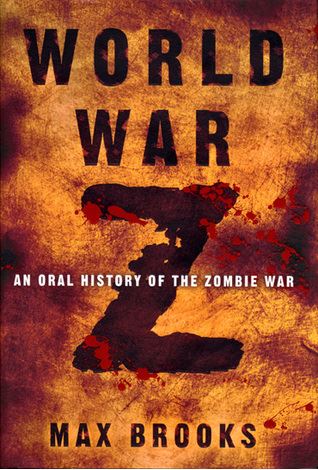
The only rule that ever made sense to me I learned from a history, not an economics, professor at Wharton. “Fear,” he used to say, “fear is the most valuable commodity in the universe.” That blew me away. “Turn on the TV,” he’d say. “What are you seeing? People selling their products? No. People selling the fear of you having to live without their products.” Fuckin’ A, was he right. Fear of aging, fear of loneliness, fear of poverty, fear of failure. Fear is the most basic emotion we have. Fear is primal. Fear sells.
― Max Brooks, World War Z: An Oral History of the Zombie War
‘The Sword Of Truth Series’ by Terry Goodkind (836 pages)
Richard Cypher is living an idyllic life, until he’s suddenly thrust into epic circumstances that are not of his own making.
A mysterious woman calls upon him to fulfill a destiny that he had never imagined for himself. Magic, humanity and destiny collide.
How will Richard answer the call to adventure?
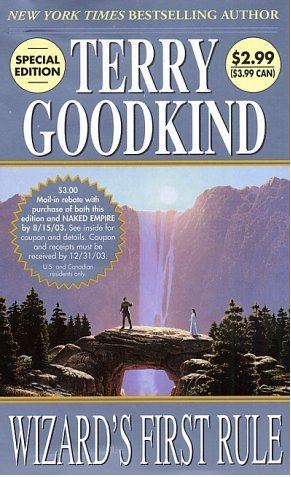
Everybody knows it. Wizards are supposed to have beards. It’s common knowledge.
― Terry Goodkind, Wizard’s First Rule
‘The Sword of Shannara Trilogy’ by Terry Brooks (726 pages)
Over the course of three novels, several generations of the Ohmsford family find themselves retrieving magical artifacts in the desperate hope to fight evil. In a far-off future of the world, we know today that magic is real.
The first book is a bit rough around the edges. You will quickly decide whether you hate it or love it because there doesn’t seem to be much in-between between the opinions of readers.
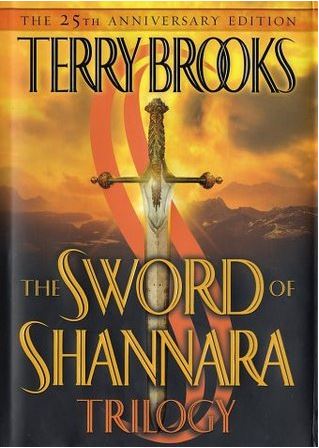
If you think yourself to have a very sophisticated palate then this book might not be for you.
It’s more habit than stupidity when I laugh at these things. I laugh at them to stay a sane man.
― Terry Brooks, The Sword of Shannara
‘The Time Traveler’s Wife’ by Audrey Niffenegger (500 pages)
An impossible love story, which nevertheless draws you in. Amused and holding your breath, you watch how Henry and Clare try to make a beautiful relationship work across non-linear time.
However, be warned this seems to be a really divisive book. You’ll either love it or hate it. If you are more accepting of premises without much elaboration then you should enjoy it.
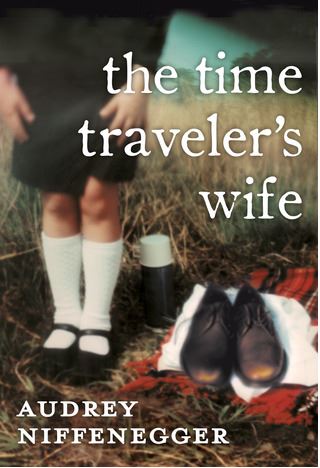
I’m sorry. I didn’t know you were coming or I’d have cleaned up a little more. My life, I mean, not just the apartment.
― Audrey Niffenegger, The Time Traveler’s Wife
‘Journey To The Center Of The Earth’ by Jules Verne (240 pages)
One of the oldest books in the science fiction genre. Verne creates a world within a world that brings us an age of exploration that we are too young for. From a science history perspective, it’s an interesting look into the worldview of 19th-century paleontology and geology.
If you are very nitpicky then this is not a book for you. But if you have the grace to forgive some creative freedom then you might find yourself enjoying this book tremendously.
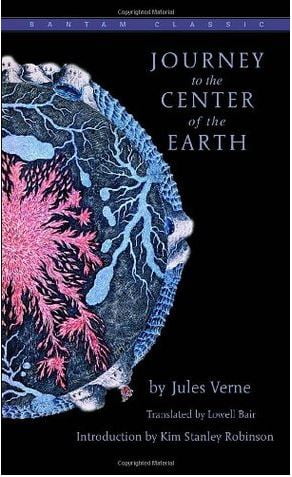
While there is life there is hope. I beg to assert…that as long as a man’s heart beats, as long as a man’s flesh quivers, I do not allow that a being gifted with thought and will can allow himself to despair.
― Jules Verne, Journey to the Center of the Earth